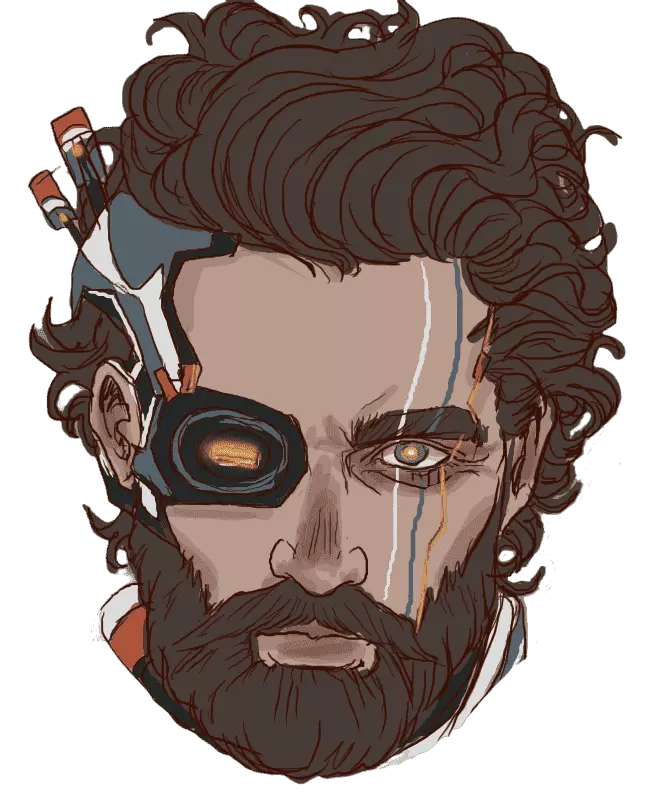News is supposed to tell you what happened not how to feel about it. When you notice an article is using a lot of emotionally charged language, that’s a good sign to check the facts (if there are any)
You might as well only read news wires like Reuters and AP, then.
Context matters, emotions matter, selective reporting is rampant, and all journalism writes to their audience. It’s usually more accurate to read articles from both sides of an issue and assume that both are wrong, with the truth often somewhere in the middle. On a geopolitical scale, it’s also good to assume rational actors (because, far more often than not, they are rational even if you don’t have the context that rationalizes an action).
Or read anything and register how the language affects you compared to the substance of the piece.
with the truth often somewhere in the middle
Realistically, any piece of information is reported from a point of view. It is published following an editorial line, tinted by an opinon or an alter motive. This is why you should always consider the source of the information and if you really need to know, crosscheck with multiple independant sources.
It kind of sounds like you’re mistrusting of journalist in general. I don’t think journalists are the problem though, columnists maybe, and publishers definitely. There is the big difference between calling a LGBT bookreading a hellscape and calling a war zone a hellscape. Some news tells you what is; others chew it, digest it, and put sprinkles on the soft serve for you.
I don’t distrust journalists. I think it’s always important to consider who I am reading or hearing from, to take this fact into consideration as well in order to make my judgement. There are as many ways to report a fact as there are hands to write about it, the choice of words has an influence, as you pointed out with your example. We can trust reputable sources with more confidence, but non the less, I don’t think it’s ever as simple as reporting “what is”. E.g: “a cat got run over by a car” vs “a man killed a cat with his car” just reporting a fact, very different feeling.
Cool, same book, same page. I’ve just seen a lot of journalists get demonized because of the misinformation surge and that sucks because we need more of them more than ever.
We desperatly need more good journalists and more truly independent media. In this day in age we expect a lot for free, but I am glad to pay for newspaper subscription and for public radio/tv.
If an article has any emotional charge at all it’s automatically not factual
I can’t tell if you’re trying to lampoon my take or really believe that.
I still remember a 2 day assignment we had of finding scientific articles, and classifying them as trustworthy or not. Ie, was it in a peer reviewed journal vs a study at a “clinic” that has bias in the outcome. I remember that to this day and feel like it was a major shift toward my ability to think critically
I can already hear Republicans writing up a ban on this type of class in Florida.
Shortcut is to just include it under their definition of CRT
…a bit like how California classified bees as fish, except that was for conservation and this would just be evil lol
you sure they wouldn’t like to tell young people what to believe and what not?
Critical thinking skills != Telling people what to think
But then again, republicans won’t see a difference, or they’ll pretend not to see a difference
Yeah, they would, but I guarantee the course wouldn’t be about spotting fake news like this article is suggesting is what is going to happen.
You see a problem with making children smarter?
I literally do not know how you read that from my original comment. That’s not even remotely what i said.
I said that republicans won’t ban this. If anything, they’ll misuse it to discredit opposing political views.
Not a Republican but see one risk and one flaw in teaching kids to rely 100% on science: there are strategic reasons to make some decisions which you miss if you rely solely on “science” sources. The biggest risk here is if kids are taught to trust anything called “science” but not how to differentiate between good studies and bad studies - there are journals that will publish anything, and it’s easy to manipulate people if they cannot effectively differentiate between good and bad studies, which requires a deeper understanding of statistics and ability to think critically about the variables tested, controlled, and overlooked or ignored.
It’s still better than relying on literally anything else. Doesn’t have to be perfect.
That’s the thing though, outside of studies published in journals where you look up their ranking and it’s high enough that you trust the peer review, how do you tell the difference between imperfect and flawed in a way that renders the conclusion useless to your use case? It’s not a rhetorical question, that’s what I’m saying requires deeper knowledge and where you should not trust it alone without having qualified help review it for you. And without the help, yeah it’s just as well to go without.
If the study has major flaws it’s relatively easy to spot if you have an idea what to look for. You don’t need special education for that.
It’s not even a problem if you consider reputable sources in the first place, which, again, is relatively easy to do.
Looking at the alternative, even a flawed study is better than a simple opinion piece.
So yeah, I disagree with everything you said basically.
You disagree with my statement that is not actually contradicted by anything in your statement, apart from your open acceptance of flawed studies?
My question then is this: what do they teach kids to allow them to spot flaws and what do they teach them as the method for determining who is reputable? Beyes theorem? How to control for multiple variables? I don’t actually know whether they go into this or tell kids to JUST trust an authority.
Flawed studies have done all kinds of harm over the years before being retracted. Linking vaccines to autism for one.
You disagree with my statement that is not actually contradicted by anything in your statement, apart from your open acceptance of flawed studies?
Because your statement offers no viable alternative and basically condemns following scientific literature unless you are a trained professional on the grounds that some studies might be flawed.
Which is what I tried to point out in both of my prior comments to no avail.
My question then is this: what do they teach kids to allow them to spot flaws and what do they teach them as the method for determining who is reputable? Beyes theorem? How to control for multiple variables? I don’t actually know whether they go into this or tell kids to JUST trust an authority.
That question is impossible to answer. Even if we were only talking about the US, but much less globally. What we can agree on is that it’s probably not enough in most places.
Flawed studies have done all kinds of harm over the years before being retracted. Linking vaccines to autism for one.
And the attitude of “one study has been flawed so I won’t trust science ever again” is something that you predict to be a better viable alternative?
I think you misunderstood. The article doesn’t suggest that children are taught to rely on science, but instead suggests they use critical-thinking skills.
The class is dedicated to developing critical thinking skills.
I know adults who need to take that class.
fully expect the entire right wing media aparatus to be demonizing this as something ridiculous as brainwashing kids against facts and truth, and “LIBERALS REQUIRE FORCED INDOCTRINATION TO MAKE KIDS ACCEPT THEIR LIES”.
Or worse, they have the same sort of class, but opposite- one that teaches kids how to recognize “liberal” prose and teaches them to reject it.
And you know it will devolve into little more than literal nazi indoctrination, with hatred for trans, gays, jews, immigrants,etc.
Thinking critically about internet content
Random confession bear meme on the board
“Ok class. What are some things wrong with this meme? Samantha?”
“It’s not actually confessing anything?”
“Correct!”
Really bad news for the MAGAs.
This, frankly, is an incredible move. Hopefully us Europeans take notice and consider implementing something similar.
hope we do not.
Imagine the most fringe right Party in your country. Now imagine they come to power. Now imagine what they would do with such a class.
For what its worth, my country has had a far right party in power for the last 13 years, and I still want this.
…Ban it? Or at least keep the name and ban the actual content. I mean, they clearly can’t teach people to think critically. They’d be asking people to scrutinize what they’re doing.
So what is this: Research, learning logical fallacies and critical thinking OR Trust the government, authority and sanctioned ‘experts’? 🤔
I’m guessing door number 3: ineffective curriculum, teachers who just try to get through it instead of make it interesting, and students end up not caring at all. It’ll just be some box that needs to get ticked so some politician gets a pat on the back. I’m guessing they do it in the last quarter of the school year during senior year when nobody is paying attention anyway.
I’m not expecting much here. California, please impress me, I’m setting the bar incredibly low here.
Nice! I had that when I grew up actually!
I’m 38.
It has been the one most useful thing I learned in any school honestly
Internet shizzos will believe this is indoctrination and brainwashing
They already think that about science class
Why are we allowing it to be called “fake news” rather than what we should be calling it, which is, just totally made up?
How is it not lying to the public, how is that not illegal?
It’s not even at the level of positive/negative interpretation of news events so that it benefits a political viewpoint. It is simply straight up made up lies.
deleted by creator
Is this real? I can’t tell.










